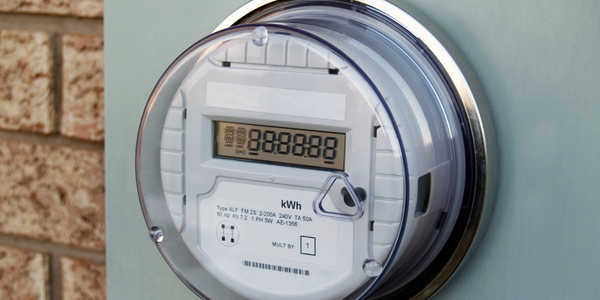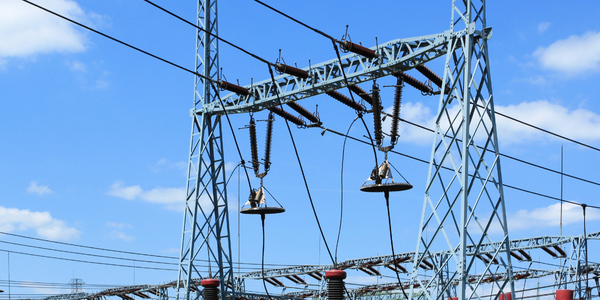Technology Category
- Analytics & Modeling - Real Time Analytics
- Robots - Wheeled Robots
Applicable Industries
- Electrical Grids
- Telecommunications
Applicable Functions
- Sales & Marketing
Use Cases
- Time Sensitive Networking
About The Customer
Deutsche Telekom AG, operating as Telekom Deutschland, is one of the world’s leading integrated telecommunications companies. The company has a presence in more than 50 countries and boasts 242 million mobile customers, 27 million fixed-network lines, and 22 million broadband lines. Telekom Deutschland provides a wide range of services including fixed network/broadband, mobile communications, internet, and IPTV products for consumers. Additionally, the company offers information and communication technology (ICT) solutions for business and corporate customers. The company was looking to cross-sell and announce a free trial of Spotify in Germany, aiming to create a rich and engaging campaign to increase conversion rates.
The Challenge
Telekom Deutschland, one of the world's leading integrated telecommunications companies, was faced with the challenge of creating dynamic cross-sell campaigns to increase conversion rates. The company wanted to announce a free trial of Spotify, the largest audio streaming provider in Germany, in a rich and engaging manner. The goal was not only to inform their customer base about the Spotify Premium offer but also to initiate conversion. Traditionally, Telekom Deutschland used SMS to communicate with existing customers. However, this method resulted in stagnating engagement and low conversion rates. The company realized that to promote their Spotify Premium offer effectively, they needed a digital channel that was as interactive and transformative as the streaming service itself.
The Solution
In order to create a rich and engaging marketing campaign, Telekom Deutschland collaborated with Infobip to leverage RCS Business Messaging. This solution combined the power of SMS with the richness of mobile apps and the interactivity of messaging apps. It allowed the company to add a dynamic flavor to the campaign with images, carousels, and the ability to start a conversation. Telekom Deutschland already had RCS enabled and was looking for ways to leverage this owned channel. Infobip's Moments, an omnichannel customer engagement hub, helped set up the flows, automate the campaign, and send the message at the right time. Additionally, Infobip's Conversations, a digital-first contact center, allowed customers to effortlessly contact an agent from the RCS message to know more and activate their Spotify premium membership.
Operational Impact
Quantitative Benefit

Case Study missing?
Start adding your own!
Register with your work email and create a new case study profile for your business.
Related Case Studies.

Case Study
Hydro One Leads the Way In Smart Meter Development
In 2010, Ontario’s energy board mandated that time-of-use (TOU) pricing for consumers be available for all consumers on a regulated price plan. To meet this requirement, Hydro One needed to quickly deploy a smart meter and intelligent communications network solution to meet the provincial government’s requirement at a low cost. The network needed to cover Hydro One’s expansive service territory, which has a land mass twice the size of Texas, and its customers live in a mix of urban, rural, and remote areas, some places only accessible by air, rail, boat or snowmobile. Most importantly, the network needed to enable future enterprise-wide business efficiencies, modernization of distribution infrastructure and enhanced customer service. To meet these needs, Hydro One conceptualized an end-to-end solution leveraging open standards and Internet Protocols (IP) at all communication levels. The utility drew upon industry leaders like Trilliant to realize this vision.

Case Study
Selling more with Whirlpool
Whirlpool wanted to add connectivity to appliances and transform the company's relationship with customers. Traditionally, Whirlpool interaction with customers was limited to purchases made once every ten years. Connected washer and dryers provide exciting new features like remote management of start times and inter-machine communication.

Case Study
SAS® Analytics for IoT: Smart Grid
Companies face falling revenues, rising infrastructure costs, and increasing risk of outages caused by inconsistent energy production from renewable sources. Less money is coming in as more people and organizations take steps to curb their energy use. Utilities are paying more to maintain and build infrastructure due to increasing complexity, resulting from the rising number of intermittent and variable renewable energy sources connected in the distribution grid.

Case Study
Enel Secures Italian Power Generation Network
Electric energy operators around the world are working to increase the reliability and cyber resiliency of their systems. This includes Enel, a global power company that manages and monitors the Italian power grid. This grid:• Serves 31 million customers• Has a net installed energy capacity exceeding 31 gigawatts• Includes more than 500 power generation plants,including hydroelectric, thermoelectric, and wind• Is managed and monitored by Enel 24/7/365• Is operated by Terna, the Italian Transmission System Operator (TSO)Enel is responsible for the availability of the grid’s underlying ICS and industrial network. It also manages Regional Control Centers and Interconnection Centers which connect with the TSO. The TSO manages the flow of energy to the grid plus controls and remotely regulates the power generation of power plants, increasing and decreasing power production as required. The complex system of interaction and cooperation between Enel and the TSO has strong security implications as well as operational and business challenges.

Case Study
Vodafone Hosted On AWS
Vodafone found that traffic for the applications peak during the four-month period when the international cricket season is at its height in Australia. During the 2011/2012 cricket season, 700,000 consumers downloaded the Cricket Live Australia application. Vodafone needed to be able to meet customer demand, but didn’t want to invest in additional resources that would be underutilized during cricket’s off-season.








